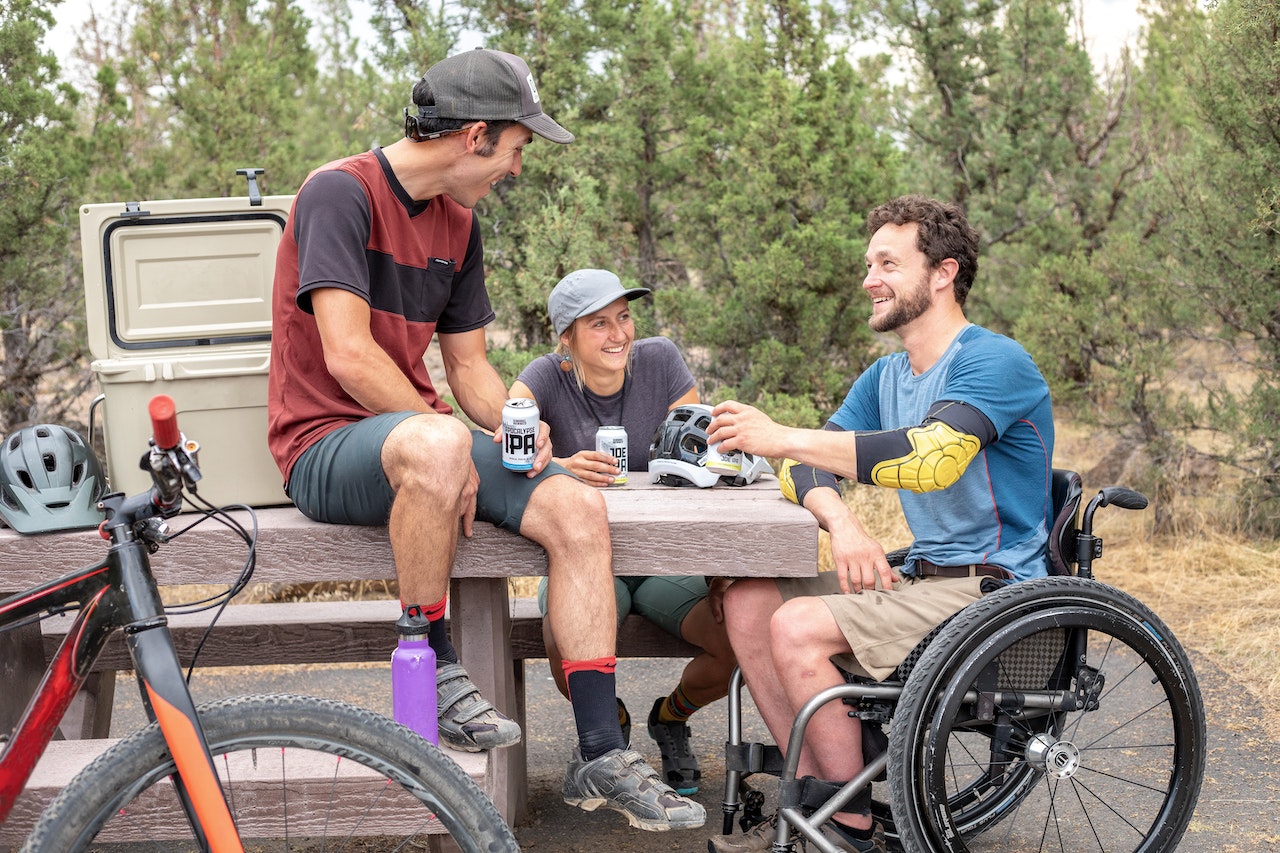Advice for Accessing the Outdoors
A physical disability shouldn't mean saying goodbye to the great outdoors. Public parks are for everyone, and increased accessibility in the Sunflower State has opened more opportunities than ever to get outside.

“Recreation is important for everyone, for both the body and the soul,” said Dot Nary, retired Life Span Institute assistant research professor, who has written about accessible opportunities for recreation across the state.
Trails that are only accessible by stairs or narrow paths are examples of how barriers have prevented an estimated 1 in 4 U.S. adults who are disabled—in addition to an estimated 1 in 6 children with disabilities—from accessing recreational opportunities.
“This is changing due to the Americans with Disabilities Act and advocacy on the part of disabled Americans, as well as greater awareness among recreational professionals that they are charged is to serve the entire community,” Nary said.
Free Access Pass to National Parks
Individuals with disabilities are eligible for a free lifetime pass to visit the National Parks and Federal Recreational Lands. The Access Pass can be used at over 2,000 Federal recreation sites including 17 locations within Kansas.
The pass covers admission to National Parks, National Wildlife Refuges, National Forests, and other federal recreation lands and grants admission to everyone in the same vehicle of pass owner and up to three additional adults individual admission fees are charged.
Instructions for obtaining an Access Pass are available at the National Parks website. Applicants will need to fill out the required forms and mail it in with a $10 processing fee or hand it in at a federal recreation site. A list of national parks in Kansas is available online.
Accessibility in Kansas State Parks
Accessible opportunities for outdoor recreation are available through the Kansas Department of Wildlife and Parks Department.
All state parks in Kansas are ADA compliant except Sand Hills State Park which has been preserved for its sand dunes, grasslands, wetlands, and woodlands. Accessible restrooms, cabins, camping and paved trails are among the ways that parks are striving to welcome everyone.
"Most of the State Parks have hiking trails but accessibility may be limited," said Brenda Dean with the Kansas State Parks. "We do have ADA access to water and many have kayak launching areas. Cross Timbers State Park has a kayak and canoe trail."
Just outside of Lawrence, Kan., home to the University of Kansas, Clinton State Park has opportunities for hiking and fishing, a 25-mile hiking/biking trail, an 18-hole disc golf course and more. Around a half-hour drive from Lawrence are Kaw River State Park in Topeka and Perry State Park in Ozawkie.
If you have a bit more time, Pomona State Park in Vassar, Flint Hills Trail State Park in Garnett and Eisenhower State Park in Osage City are all about an hour from Lawrence.
These are in addition to a list of accessible recreation opportunities compiled by Nary with Life Span Institute researchers with the Institute for Health and Disability Policy Studies, which has county by county breakdown of accessible recreation opportunities in the outdoors.
You can find a full list of parks with more information at the Kansas Department of Wildlife and Parks (KDWP).
Adaptive Sportsmen of Kansas
Through the KDWP’s Adaptive Sportsmen of Kansas (ASK), people with disabilities can reserve one of eight electronic, all-terrain track chairs for use at pre-approved outdoor events and other conservation-based activities.
The track chairs are available for free on a first-come, first-served basis. The chairs are controlled by a joystick on the right armrest and are equipped with a four-point harness, gun mount and fishing rod holder. For more details, visit the ASK Program page online or call Pratt Operations Office at 620-672-5911.
Special Hunts offered by KDWP
The KDWP offers Special Hunts on lands not normally open to hunting, with a limited number of participants drawn by lottery. Applicants for the Special Hunt must enter in one of four hunting groups — open, youth, mentor and disabled. The “disabled” category allows for accommodations, including the ASK track chairs.
While participating in the lottery is free, all appropriate licenses, stamps, tags and permits are required. Deer hunters must purchase a valid permit for the Deer Management Unit.
Visit the KDWP website for more information.